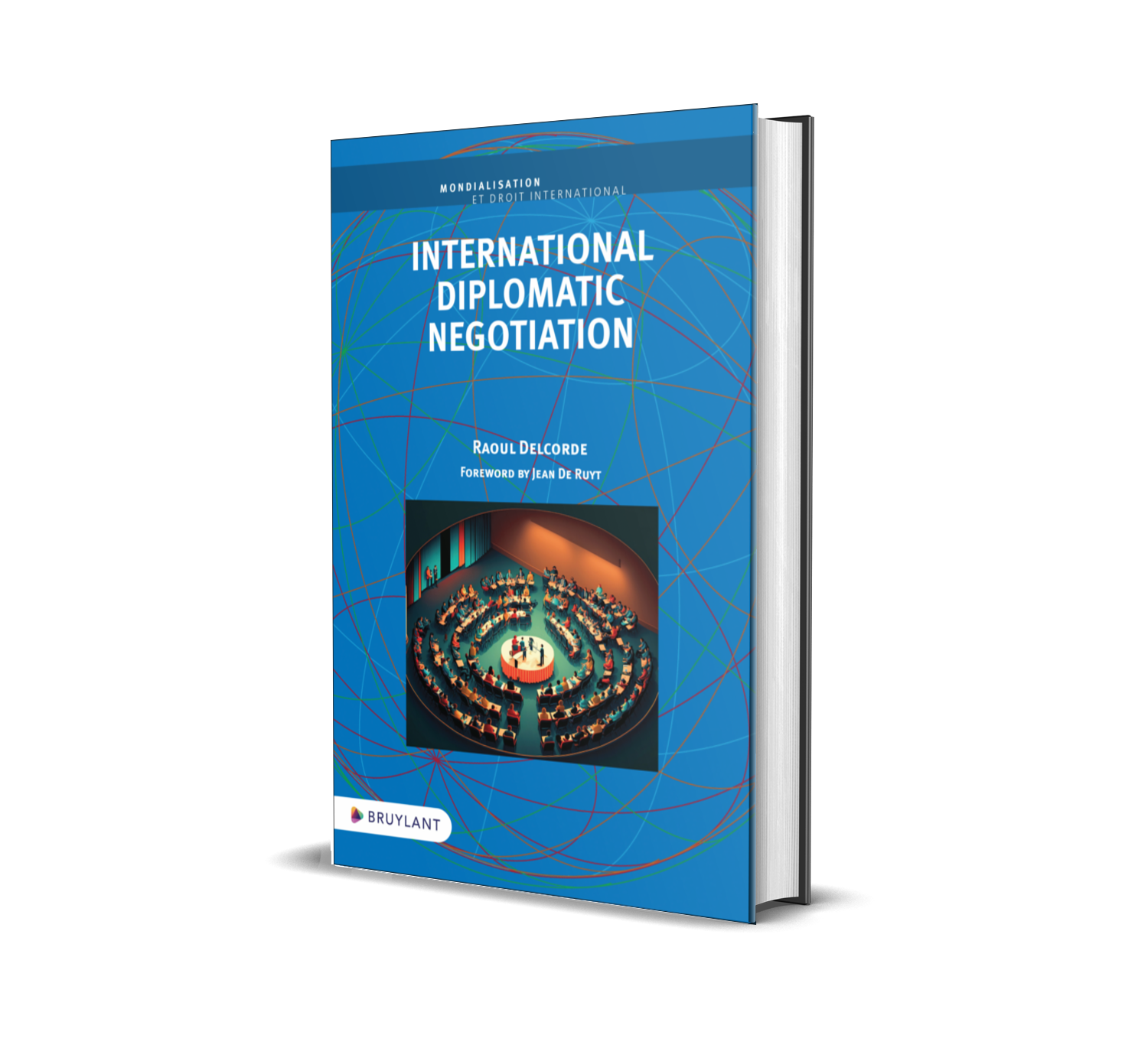| Interview |


Interview with Raoul Delcorde
To mark the publication of his book "International Diplomatic Negotiation," Raoul Delcorde, ambassador (hon) of Belgium, Ph.D and Member of the Royal Academy of Belgium, shares his perspectives by responding to a series of questions.
How would this book have helped you/help you in your career as a diplomat?
Diplomacy has always been equated with the art of negotiation. In his Political Testament, Richelieu explains that diplomatic practice involves constant negotiation. And, after all, that is what diplomacy is all about: negotiating, persuading, finding compromises, and preventing disputes from escalating into open hostility. A manual on diplomatic negotiation is therefore the diplomat-negotiator's handbook. Such a work allows readers to familiarize themselves with the contours and techniques of diplomatic negotiation before entering the arena and testing the advice provided. It should not be forgotten that negotiation is an art and that there is no magic formula for successful negotiation.
Are all negotiations structured in the same way?
There are as many types of negotiations as there are situations. Negotiating an economic agreement between two countries is not the same as negotiating the adoption of a resolution at the Security Council. But there are some constants: time management (negotiations that go on indefinitely are rarely conclusive), discretion and even, if necessary, secrecy; language (in diplomacy, words often translate into actions), tact, of course, and the will to succeed, i.e., to find a middle ground, a balanced solution, which is the opposite of the zero-sum game that some people play and which is the opposite of compromise.
How difficult it is to negotiate for a diplomat?
If politics is a combat sport, international diplomatic negotiation is a sport of endurance and precision. In a constantly changing world that has experienced growing unrest in recent years, particularly since February 24, 2022, with Russia's invasion of Ukraine, and October 7, 2023, with the tragic attack by Hamas in Israel, one might think that diplomacy has lost its luster and effectiveness in favor of settling disputes through armed conflict. Admittedly, negotiations between Ukraine and Russia are stalling at present, but the signing of bilateral security agreements between Ukraine and Germany, on the one hand, and France and Ukraine, on the other, shows that international diplomacy is in full swing. The same is true within an international organization such as the European Union (EU), where negotiations are underway on Ukraine's integration into the EU.
How have you structured your book?
I decided to examine diplomatic negotiations through several questions: who negotiate and on whose behalf? Why negotiate? What is being negotiated? How far one does negotiate? My work looks at the actors, the motivations, the content and limits of international negotiations. Where do we start from? Where do we want to end up? These questions, which seem to be obvious, are examined from all angles. But I want to add that reducing negotiation to theoretical rules is vain, as it is an art made of observation, deduction, synthesis, in which experience and intuition are as important as rules and customs.
What factors have the greatest influence on negotiations? Can you give a specific example?
French ambassador Pierre Morel wrote that “the first document is the other person, whom you have to decipher and understand, both during and outside of meetings.” Interpersonal relationships have a lasting influence on negotiations. The success of diplomatic negotiations depends largely on trust (the opposite of dirty tricks). For example, the agreement on the Iranian nuclear issue (the JCPOA) was signed in 2015 largely because High Representative Mogherini and Iranian Foreign Minister Zarif managed to overcome the antagonism and mistrust that existed and find a middle ground based on mutual trust.
About the book
International diplomatic negotiation
Negotiation manages a balance of power between states and governments with divergent aims. Let's enter the diplomatic arena and see if we can use concrete examples to illustrate the various aspects of a diplomatic negotiation. We can draw on conceptual analyses and confront them with empirical verification.
Raoul Delcorde
January 2025
ISBN 9782802776031
